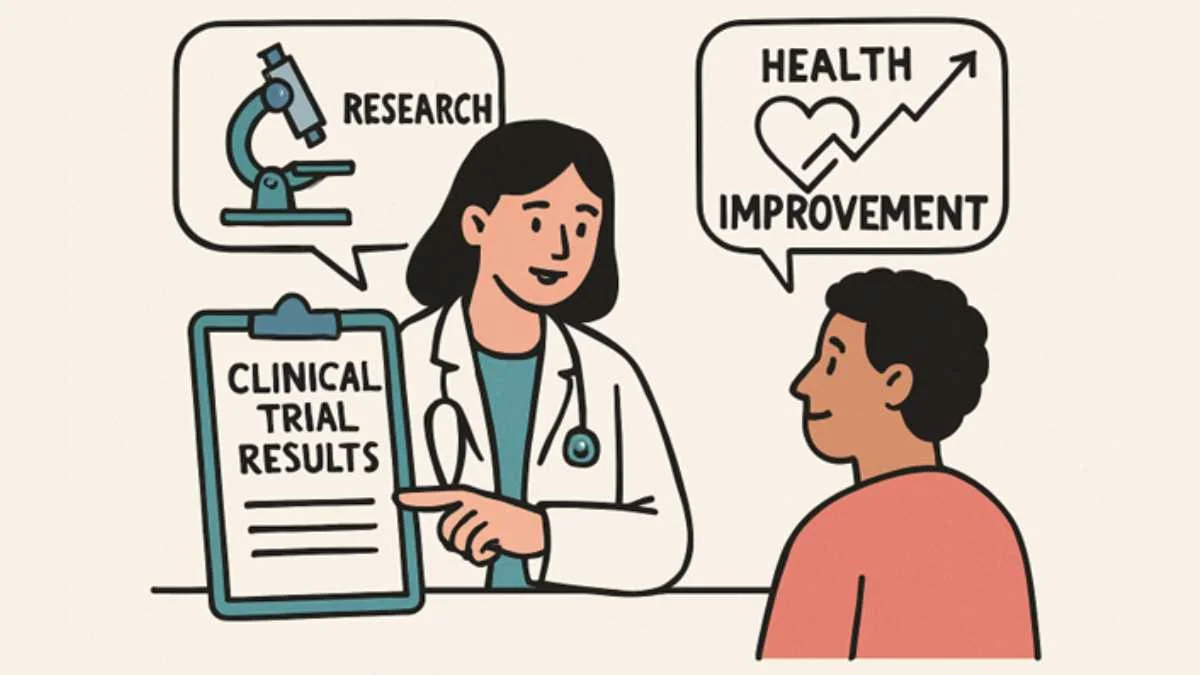HEALTH AND FITNESS
Transforming Cystic Fibrosis Care Through Clinical Research

The Role of Clinical Research in Cystic Fibrosis
The landscape of cystic fibrosis care has been profoundly reshaped by ongoing clinical research. As the backbone of medical innovation, clinical studies are crucial for evaluating novel therapies and refining present-day treatments, providing renewed hope for those affected by CF. For example, patients seeking participation in new therapy studies—including those targeting specific symptoms like acute pain—may explore opportunities such as the open clinical trial for acute pain, which represents just one instance of research broadening the scope of CF care. These carefully designed trials illuminate unexplored aspects of the condition and foster the development of breakthrough treatments designed to target underlying disease mechanisms.
In addition to expanding treatment options, clinical trials lead to a deeper understanding of CF pathophysiology, paving the way for more effective, patient-centered interventions. With global collaboration and a growing emphasis on patient diversity, researchers are accelerating progress toward new and inclusive standards of care.
Advancements in Gene Therapy
Gene therapy stands at the forefront of transformative approaches in cystic fibrosis research. For decades, scientists have imagined correcting the genetic root of the disease rather than just managing its symptoms. Recent breakthroughs now move this vision closer to reality. Promising studies are testing the delivery of functional CFTR genes directly to the lungs, aiming to restore the impaired function that drives CF. A pioneering trial in the UK and Europe is currently investigating an inhalable gene therapy, which may be effective regardless of the patient’s specific CFTR mutation. This innovation marks a significant leap forward as it could provide a long-lasting solution and reduce reliance on life-long medications. Learn more about this innovative therapy.
Personalized Medicine and CFTR Modulators
Personalized medicine is transforming the scope of CF management through the development of CFTR modulators—drugs that target the unique mutation each patient carries. These medications, such as the triple therapy combination of elexacaftor, tezacaftor, and ivacaftor, have already changed the lives of many, dramatically improving lung function, nutritional status, and quality of life. Patients who previously faced relentless disease progression now experience better day-to-day health and increased life expectancy.
Despite these significant advances, hurdles remain. Not every mutation responds to existing modulators, and many patients worldwide still lack access due to cost, regulatory, or supply chain barriers. The future of personalized CF treatment depends on overcoming these obstacles, ensuring that these transformative drugs are available to every eligible patient regardless of genetic profile or geography.
Holistic Management Strategies
The complexity of cystic fibrosis demands a holistic approach beyond medication alone. Integrated care focuses on psychological support, nutritional guidance, and lifestyle counseling as foundational elements of routine management. Addressing mental health and emotional well-being is now recognized as pivotal, with structured programs offering counseling and community support. Nutrition, another cornerstone of CF care, helps prevent malnutrition and supports immune function, directly impacting patient outcomes.
By weaving together medical treatment with comprehensive psychosocial and nutritional support, clinicians are able to improve patient adherence, promote resilience, and optimize quality of life, demonstrating the importance of addressing the whole person—not just the disorder.
Innovative Clinical Trials and Research Centers
Global research centers are spearheading a new era of personalized, effective CF therapies. Notably, Boston Children’s Health Physicians launched a groundbreaking trial evaluating an inhaled medication tailored for patients not benefiting from current therapies. This initiative highlights the commitment of top-tier institutions to fill knowledge gaps and deliver hope to patient populations typically underserved by existing drugs.
The ongoing expansion of clinical trials—and the embrace of emerging technologies such as telemedicine and digital health—further underscores the adaptive and forward-thinking nature of CF research platforms worldwide.
Challenges and Future Directions
While the pace of progress in CF is exhilarating, numerous challenges remain unresolved. Equitable access to next-generation therapies remains an urgent priority; disparities in care can mean that many patients are unable to participate in or benefit from advanced treatments. Additionally, the diversity of CF mutations necessitates ongoing research to create mutation-agnostic therapies—treatments that can help all patients regardless of their genetic variant.
Looking ahead, the integration of artificial intelligence in clinical trial design and personalized care promises to further individualize therapy and maximize health outcomes. Collaboration across disciplines, patients, and advocacy organizations will continue to propel innovations, ensuring that every advance in research translates into tangible improvements for people living with cystic fibrosis.
Conclusion
Driven by rigorous clinical research and collaboration, cystic fibrosis care is undergoing a remarkable transformation. The introduction of gene therapies, advancement of personalized medications, focus on holistic management, and commitment to inclusive access are redefining what is possible for those living with CF. With ongoing trials and a relentless pursuit of progress, there is renewed optimism for improved health and a brighter future for all individuals affected by this complex condition.
This progress is not only extending life expectancy but also significantly enhancing quality of life for many patients. Multidisciplinary care teams now emphasize mental health support, nutrition, and exercise as essential components of comprehensive treatment. Innovations like modulator therapies are enabling many people with CF to experience near-normal lung function and fewer hospitalizations. Additionally, advocacy efforts continue to play a vital role in ensuring these advances reach diverse and underserved populations. As science and society align in support of CF communities, the vision of a future free from the limitations of this disease feels more attainable than ever.
-

 BIOGRAPHY9 months ago
BIOGRAPHY9 months agoBehind the Scenes with Sandra Orlow: An Exclusive Interview
-

 HOME1 year ago
HOME1 year agoDiscovering Insights: A Deep Dive into the //vital-mag.net blog
-

 HOME1 year ago
HOME1 year agoSifangds in Action: Real-Life Applications and Success Stories
-

 BIOGRAPHY1 year ago
BIOGRAPHY1 year agoThe Woman Behind the Comedian: Meet Andrew Santino Wife




























